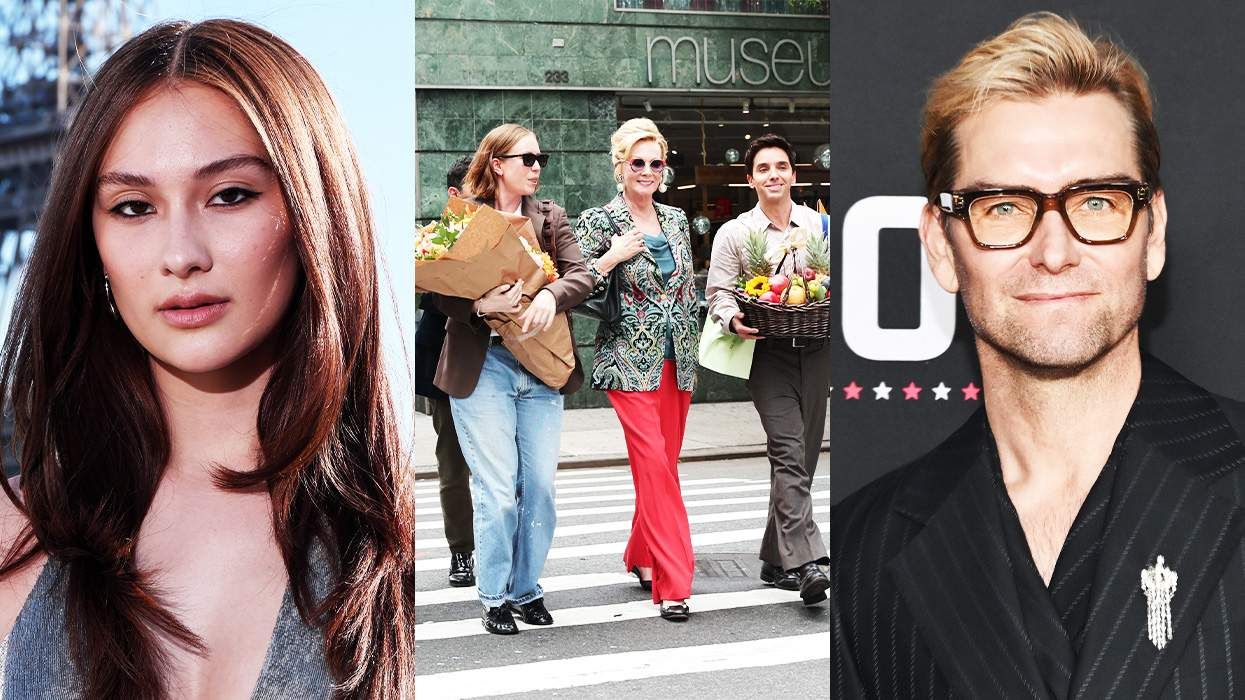Growing up, I watched reruns of All in the Family that ran weekdays at 5:30 p.m. on a local Pittsburgh channel. I was too young to watch the show when it aired on CBS prime time in the early to mid 1970s, so I watched — over and over — the reruns that aired right before the local news at 6 p.m.
Looking back, All in the Family seemed to be just as consequential as the news. That show was not only iconic and funny – hilariously funny — but it was also groundbreaking in ways that were astonishing in the 1970s.
During that time, television was still in its infancy. Well, maybe it was in its early puberty years. When All in the Family debuted in January of 1971, it was only 20 years after I Love Lucy's premiere in 1951. Up to that point, putting a bigot like the show’s main character, Archie Bunker (played brilliantly by Carroll O’Connor), on TV was considered lunacy. Television shows were maudlin and bland or downright far-out. Lovable but wacky series like The Beverly Hillbillies and I Dream of Jeannie come to mind.
When Archie, his wife, Edith (played wonderfully by Jean Stapleton), their daughter, Gloria (Sally Struthers), and her husband, Mike (Rob Reiner), premiered, All in the Family was considered offensive at best. No one had ever talked the way Archie did on television. People talked the way Archie did in society, but not in the antiseptic world of television. In 1971, people were racist, homophobic, xenophobic, and sexist. If you can believe it, they were worse than they are today.
But creator and producer Norman Lear used humor and sentiment to make Archie palatable and lovable, despite his offensive language, as opposed to, say, a modern-day racist like the loathsome Tucker Carson. But I digress.
Lear also addressed issues like sexism, racism, and xenophobia — and most memorable to me, homophobia. On one of the show’s earliest episodes, in February of 1971, Americans got a rude awakening that gay men weren’t always flimsy, flippant, flamboyant, flirty, and wildly dressed – which was the resounding and cemented stereotype in society of what a gay man was.
The episode was called “Judging Books by Covers,” and it involved a friend of Mike’s, Roger, who was visiting the family. Archie said that Roger was “queer as a four-dollar bill,” as Mike had said, “Just because a guy is sensitive, and intellectual and wears glasses, you make him out to be queer.” However, Roger was straight, and it turned out that Archie’s macho drinking buddy Steve was the one who was gay, much to Archie’s chagrin and disbelief.
I vividly recall watching that episode again and again, seeing some validation about who I was and what I was feeling. It was hard for me to understand – and even accept, like Archie – that Steve was gay. That was the antithesis to what I knew and heard about being gay. My grandfather used to say “queerer than a three-dollar bill,” so I understood what Archie was implying about Roger. Even though Roger wasn’t gay, I sympathized with his character because to me, that’s how a gay man comported himself.
It is hard to quantify just how consequential that episode of the show was and how confusing it was for me.
Roger was played by longtime General Hospital star Anthony Geary, who won a record eight Daytime Emmy awards for his unforgettable portrayal of Luke Spencer. Though I didn’t watch soap operas, anyone who was of age in 1981 will remember the soap’s wedding of his character, Luke, to Laura. It was a cultural phenomenon and remains the most watched episode of a soap opera in television history.
Geary, now 76, was part of two historic moments in television history, has been retired for several years now, and lives quietly in Amsterdam. Through some help (many thanks to Jim Warren and ABC's Marianne Price), I was able to track him down to speak to him about his first star turn in All in the Family that is one of the most indelible moments in queer TV history. He and Rob Reiner are the only actors still alive from “Judging Books by Covers.”
My first question to Geary was about him taking the role. At that time, an actor risked jeopardizing his career by taking on a gay part – even though Roger wasn’t gay, the very fact that there was debate about his sexuality might have been enough to taint the actor.
Did Geary have any trepidation about playing Roger? “Truthfully, no,” he said. “If I were worried about people presuming me gay, I wouldn’t be an actor, performer, wrestler, trapeze artist, or plate spinner. I would stridently avoid career choices requiring tights or the application of makeup.”
What does he remember most about that episode?
“Norman Lear,” he quickly replied. “He was a television giant who hired me to play ‘Roger the Fairy’ on the third episode of the first season. I was honored and excited to work with the remarkable cast under the sharp, deeply human eye of Mr. Lear. Working with him was like being given a ticket to run with the big dogs.”
Geary said that even by the third episode, he saw that the small cast was gelling and morphing into a formidable company. “They were all spectacular actors, but to me, Norman Lear was the star. He was a bubbling font of genius; creative, genuinely supportive, sharp, present, kind, and very much in charge.”
For Geary, working with Lear was one of the great honors of his career, and that appearing in that episode still means a great deal to him “We taped the show before a live audience at CBS Studios in L.A. the same night the first show aired, which was in January of ‘71. I remember leaving the studio that night feeling accomplished, and I remember driving home that night realizing that my experience had been important and that somehow, at a young age, I had reached an unexpected milestone.”
Geary said that when he first read the script of the show, he knew the material was strong. “It handled important issues around prejudice and homophobia with truth and heart. Most importantly, the script was funny. In those days, we didn’t routinely see gay characters on TV. When we did, they tended to serve as the butt of a joke or the subject of violence. This story highlighted the truth that all gay people are not alike and proved again that images and preconceptions about gays are often incorrect, deceptive, and offensive.”
Finally, what was Geary’s reaction when he learned of Lear’s passing? “Gratitude for him. I want to thank him from the bottom of my heart for giving ‘Roger the Fairy’ to me and guiding and supporting my performance.”
John Casey is senior editor of The Advocate.
Views expressed in The Advocate’s opinion articles are those of the writers and do not necessarily represent the views of The Advocate or our parent company, equalpride.
















Charlie Kirk DID say stoning gay people was the 'perfect law' — and these other heinous quotes
These are some of his worst comments about LGBTQ+ people made by Charlie Kirk.